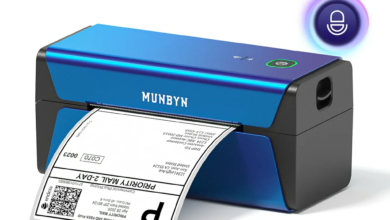How to Avoid Low-Quality Research Peptides in the Market

Introduction
In the rapidly growing field of biotechnology, peptides have become essential tools for scientific discoveries and innovations. From medical research to pharmaceutical development, these compounds are at the heart of many breakthroughs. However, not all products in the market meet the required standards. Low-quality research peptides can compromise study results, waste valuable time, and lead to financial loss. This is why scientists, laboratories, and research institutions need to know how to identify and avoid inferior products.
By understanding what makes peptides high-quality, learning to evaluate reliable peptide manufacturers, and avoiding common purchasing mistakes, buyers can ensure their work remains accurate and credible. This guide offers clear, practical tips to help researchers source only the best research peptides for their projects.
The Importance of Quality in Research Peptides
Research peptides are short chains of amino acids used in laboratory experiments to study biological processes, develop treatments, and create new drugs. Since they are highly specialized materials, their purity, accuracy, and stability directly impact the success of any scientific study.
Low-quality research peptides may contain impurities, incorrect amino acid sequences, or unstable chemical structures. These defects can alter experimental outcomes, making the data unreliable. For example, in pharmaceutical research, even a minor impurity can lead to false conclusions about a drug’s effectiveness or safety.
Reliable peptide manufacturers understand the importance of producing peptides with the highest possible purity, often 98 percent or higher, and providing proper documentation for every batch. Choosing such trusted sources ensures that researchers get consistent and reproducible results.
Key Signs of Low-Quality Research Peptides
Knowing the warning signs of low-quality products can help buyers avoid costly mistakes. Some indicators include:
1. Lack of Proper Documentation
Reputable peptide manufacturers provide certificates of analysis (COA) for each product. This document confirms the peptide’s purity, composition, and manufacturing process. If a supplier cannot or will not provide a COA, this is a major red flag.
2. Unusually Low Prices
While affordable pricing is attractive, extremely cheap research peptides are often low in quality. Manufacturing high-purity peptides requires specialized equipment, skilled technicians, and quality control procedures, all of which involve significant costs.
3. Poor Packaging and Storage
Peptides are sensitive to environmental factors like light, heat, and moisture. They must be stored in sealed, sterile containers and shipped with temperature control when needed. Products that arrive in poor packaging or without storage instructions may be compromised.
4. No Customer Support or Communication
Professional peptide manufacturers maintain clear communication with their clients, answering questions and offering guidance on handling and storage. A company that ignores inquiries or gives vague answers may not be trustworthy.
How to Evaluate and Choose Reliable Peptide Manufacturers
Selecting the right supplier is one of the most important steps in securing high-quality research peptides. Here are practical tips for evaluating peptide manufacturers:
1. Check Certifications and Compliance
Top-tier manufacturers follow strict international quality standards, such as ISO certifications and Good Manufacturing Practices (GMP). These certifications prove that their facilities and processes meet rigorous safety and quality requirements.
2. Review Their Experience and Reputation
A company with many years of experience in producing research peptides is more likely to deliver consistent quality. Reading customer reviews, checking industry forums, and looking for testimonials from research institutions can give insight into a supplier’s reliability.
3. Assess Their Testing Methods
Reliable peptide manufacturers use advanced testing methods like high-performance liquid chromatography (HPLC) and mass spectrometry to confirm purity and sequence accuracy. They should be transparent about their quality control process.
4. Look for Customization Options
Some research projects require custom peptides with specific sequences or modifications. Trusted manufacturers can handle these requests while maintaining strict quality standards.
5. Evaluate Delivery and Handling Processes
Timely delivery, secure packaging, and proper temperature control during shipping are crucial for preserving peptide integrity. A dependable supplier will have established protocols for this.
Common Mistakes Buyers Make and How to Avoid Them
Even experienced researchers can make errors when sourcing research peptides. Understanding these mistakes can prevent future problems.
Mistake 1: Choosing Solely Based on Price
While budget considerations matter, price should never be the only factor. Cheap peptides may lack the purity and accuracy needed for reliable research.
Solution: Balance cost with quality by comparing prices among trusted peptide manufacturers who provide full documentation and quality guarantees.
Mistake 2: Ignoring Storage and Handling Requirements
Peptides are delicate and can degrade quickly if not stored properly.
Solution: Always follow the storage instructions provided by the manufacturer, such as refrigeration or protection from light.
Mistake 3: Not Verifying the Manufacturer’s Track Record
New or unknown suppliers may not have a history of delivering quality products.
Solution: Work with peptide manufacturers who have proven experience and positive feedback from research institutions.
Mistake 4: Overlooking Batch Consistency
Inconsistent batches can lead to variable results in experiments.
Solution: Request information on batch testing and consistency from the manufacturer before purchasing.
Benefits of Working with Trusted Peptide Manufacturers like Qingli Shangmao
Partnering with a reliable supplier such as Qingli Shangmao offers many advantages for researchers and laboratories:
1. Guaranteed Quality and Purity
Qingli Shangmao ensures that all research peptides meet strict quality standards, with purity levels verified by advanced testing techniques.
2. Professional Documentation
Every product comes with a detailed certificate of analysis, giving researchers confidence in the authenticity and quality of their purchase.
3. Custom Solutions
They provide custom peptide synthesis to meet the unique needs of different research projects, ensuring precision and accuracy.
4. Reliable Customer Support
Qingli Shangmao’s team offers guidance on selecting the right products, handling, and storage, helping clients avoid common pitfalls.
5. Consistent Supply
A steady supply of high-quality peptides ensures that researchers can carry out long-term studies without worrying about variability between batches.
How Qingli Shangmao Stands Out in the Market
The peptide industry is competitive, but Qingli Shangmao has built a strong reputation by focusing on product quality, customer satisfaction, and scientific integrity. Their commitment to excellence in peptide manufacturing is evident in their strict adherence to quality control, use of state-of-the-art equipment, and dedication to transparency.
By combining advanced technology with expert knowledge, Qingli Shangmao ensures that clients receive only the best research peptides, enabling reliable and reproducible scientific results.
Final Thoughts
In the world of scientific research, the quality of materials can make or break a study. Low-quality Research peptides not only waste time and resources but can also damage the credibility of findings. This is why it is essential to work with reputable peptide manufacturers who prioritize purity, accuracy, and reliability.
By learning to spot the signs of poor-quality products, evaluating suppliers carefully, and avoiding common mistakes, researchers can protect the integrity of their work. Companies like Qingli Shangmao demonstrate that high-quality research peptides are worth the investment, ensuring consistent, trustworthy results that advance science and innovation.
Making informed decisions when sourcing peptides is not just good practice, it is essential for the future of research.




